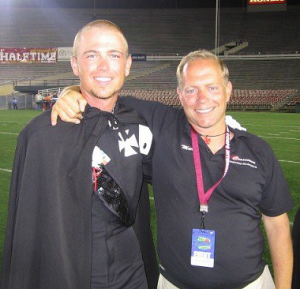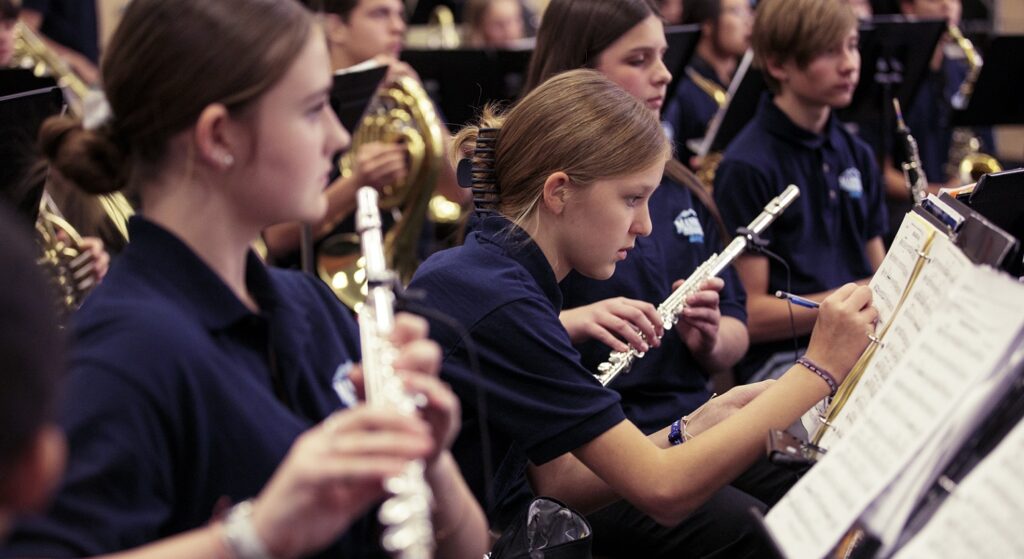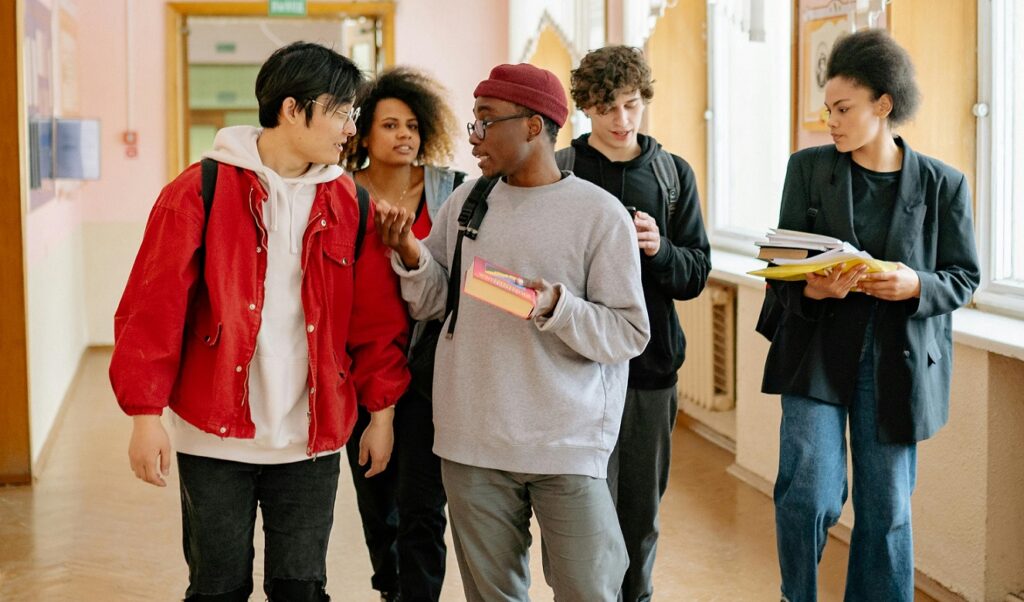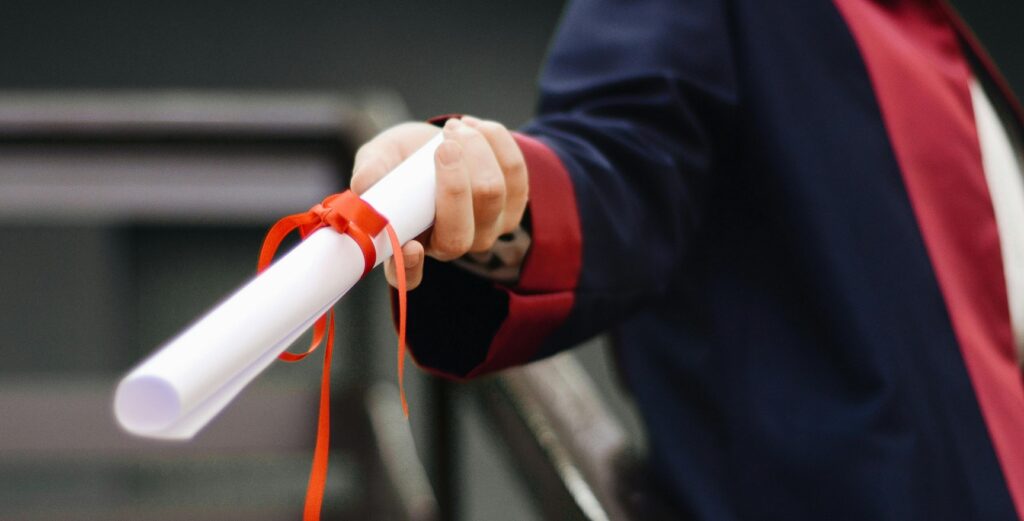Help Students Learn from Failure
Teach students to learn from their mistakes and turn failure into opportunities for growth.
How can we help our students embrace and bounce back from failures? How can we use failure to grow and continuously improve? Lifting our students from difficult moments is one of our many jobs as educators. Often, our personal encounters with setbacks and how we were able to bounce back can benefit our students as they deal with disappointment.
Failure is painful. It’s humbling. And the more emotionally invested you are in something, the more it beats you down if things don’t turn out the way you hoped.
Many younger teachers are leaving the profession today, and while I know that burnout is real, I also wonder how much this exodus is connected to feeling like they’ve failed at the job in one way or another — not necessarily failure related to competitive results but failure in general.
As an educator, it’s easy to feel like a failure. Regularly. The same could be said for anyone, but teachers are constantly taking care of the well-being of our students and co-workers. A drum corps mom once asked me, “You take care of everyone. Who takes care of you?”
That’s a hard question to answer. Teaching and leading can be lonely. Even though we lean on friends and family, we know that everyone has pressures and worries, so we hesitate to burden others working through their own issues.
A Look Back at My Big Failure
In January 2006, I had just completed a magical fall semester playing euphonium in the Rutgers University Wind Ensemble, which I considered the Rolls Royce of university bands on the East Coast. Since high school, I had dreamed of earning a position and performing with the group, and it was one of the highlights of my time at Rutgers. The mix of masters and doctoral musicians mixed with a few high-achieving undergrads made for a pretty incredible-sounding band, which was under the direction of Dr. William Berz, a brilliant musician, educator and conductor. He programmed outstanding literature that exposed his musicians to everything from transcriptions to classic wind band warhorses to contemporary pieces, many not yet published.
My heart sank when the audition results were posted for spring semester ensembles. I had been moved down from the Wind Ensemble to the Symphony Band, and my chair had been given to a first-year undergraduate. I was crushed. I remember feeling so many emotions — sadness over losing something I had worked so hard for, anger because I had invested in the process only to move backward, betrayal that my investment in the program wasn’t good enough for our conductor, and embarrassment that I no longer would be able to perform with the top musicians on campus. I was full of shame and self-doubt. And then came the tears.
 I called my dad, who was a professor and director of continuing education at Rutgers, in near hysterics and asked if I could come by his office to talk. When I got there, he gave me a big hug to let me know that everything was going to be OK, and then he allowed me to talk and spill all my emotions before even attempting to weigh in to help. After I calmed down, we talked through my disappointment, and my dad encouraged me to reflect on what might have led to the chain of events and challenged me to be proactive in my response to the situation. His suggestions included seeking feedback and staying focused on continuous improvement. And, most importantly, he reminded me of one of my grandfather’s favorite sayings, “As stressful as this seems, six months from now, you’re going to be worrying about something else.”
I called my dad, who was a professor and director of continuing education at Rutgers, in near hysterics and asked if I could come by his office to talk. When I got there, he gave me a big hug to let me know that everything was going to be OK, and then he allowed me to talk and spill all my emotions before even attempting to weigh in to help. After I calmed down, we talked through my disappointment, and my dad encouraged me to reflect on what might have led to the chain of events and challenged me to be proactive in my response to the situation. His suggestions included seeking feedback and staying focused on continuous improvement. And, most importantly, he reminded me of one of my grandfather’s favorite sayings, “As stressful as this seems, six months from now, you’re going to be worrying about something else.”
I left his office still licking my wounds and not entirely convinced I wanted to continue as a music major. That said, I did my best to reflect on my dad’s advice as I contemplated changing my major to music business, political science or communications.
When I look back on that experience now, I realize that I lost my spot to someone who was better than me. I either needed to get better at euphonium if I wanted to move back up, or I needed to feel good about performing in a great ensemble that wasn’t the Wind Ensemble. I never overcame my frustration over being dropped down during my last year at Rutgers. So rather than work harder to improve and move back up, I stopped auditioning for Wind Ensemble and spent my final year working toward my senior euphonium recital instead.
I regret this decision. While my playing did improve, it wasn’t at the level it would have been if I had confronted my fear and aggressively sought feedback to get better. I let my discouragement cause me to make a decision that wasn’t in my best interest. I had a great senior recital and enjoyed my time in the Symphony Band, but I would be remiss if I did not admit that I made the wrong decision here. I wish I could go back and do it differently. But this experience and the lesson I learned motivate me when I’m debating whether or not to walk away from something for the wrong reasons.
A Different Perspective
Since moving to Texas 15 years ago, I have been lucky to work with and learn from a variety of our private lesson faculty and masterclass instructors at Claudia Taylor Johnson High School. I now have a different viewpoint about the value of failure, especially how to build from it, and how to move forward from it.
Mr. Joe Dixon, our trombone teacher and one of my mentors, has a guiding principle when it comes to results. He tells students and staff, “Whether you succeed or fail, you get 24 hours to celebrate or sulk, and then it’s time to move forward.”
This lesson continues to resonate with me and has helped our students during their highest and lowest moments.


My career-long mentor and friend Mark Chambers believes failure is as valuable as success. He has witnessed his students experience pain over the years when they didn’t achieve the desired result, but he has also seen the personal growth and perseverance they gained. After setbacks, students learn to bounce back, analyze, reflect and keep moving forward.
There have been many times through the years at Johnson when the group or I did not achieve a desired competitive result, or we were denied admission to something we worked hard for. We have tried ideas that didn’t pan out, and we ran some events that flopped. Mark has coached me through many of these failures by sharing his wisdom, which always focused on how to “keep going.”
Sometimes failure isn’t connected to results — sometimes, we fail as role models, friends, co-workers and humans. These are some of the most challenging moments. We lose our tempers with our students. We say something that makes a student cry or feel small. We slight a co-worker. We succumb to jealousy or speak ill of someone we care about.
We must learn how to remediate these types of failures, whether it’s through a sincere apology, an open conversation and admission of error, or a plan to move forward. Accepting failure as a part of our growth will result in better outcomes in the future.
A Successful Example of Dealing with Failure
I remember one of the finest musicians and leaders in our band program earned a chair in the Texas All-State band during his freshman, sophomore and junior years. However, during his senior year, he was extraordinarily busy with college auditions (11 of them!) and placed first in the region and area rounds, only to have a problematic audition in the final contest. He did not advance to all-state that year.
 The most remarkable part was watching this student process the results and then stick around to celebrate his peers who did earn chairs, including many who asked him, “How could you not have made it?”
The most remarkable part was watching this student process the results and then stick around to celebrate his peers who did earn chairs, including many who asked him, “How could you not have made it?”
This student took photos with other students and pumped them up about the significance of their accomplishment, even though I know he probably wanted to go into a corner and cry. He was fighting many emotions that day, and when I spoke to him later, he was very calm and logical about things, even though I knew inside he was hurting.
The week after the auditions, the student admitted that the day was a “gut punch.” The days that followed weren’t the easiest for him as he watched celebrations around the other all-staters ensue. Still, he kept a fantastic attitude in our rehearsals and worked hard to move forward. Soon enough, this student was admitted to eight top music conservatories around the country. He also earned a chair in the National Youth Orchestra (NYO of Carnegie Hall). He spent the summer with this group and traveled to Berlin and Europe to perform.
I realize things do not always work out this well, but I was inspired by this student’s maturity and resilience, and I often think about how I wish I had that kind of persistence and positivity at his age.
How We Can Help
Think about when students often fail: performing in front of others, audition results/chair placements, contest results, college rejections, job rejections, losing out on leadership positions, romantic pursuits.
It’s important to be aware of your students’ feeling during these situations. Some students can’t hide their feelings, while others try to put on a brave face. We all remember being teenagers and dealing with the emotional angst that came our way. Students who participate in a music program learn much more than musical ability and music appreciation. They gain the confidence and tools to confront whatever challenges they face in life, including failure — but sometimes they need our help, whether it’s a nudge in the right direction or a supportive hand at their back.
Here are some tips to help students refocus after a disappointment.
- How can we use this failure to improve? Continuous improvement is powerful. Students must learn from their mistakes, reassess where they can improve, and work smarter the next time they try something.
- How can we help turn failure into an opportunity for growth, so students overcome the fear of failing? Resilience is best learned through experience. Help students confront that fear and turn it into a positive motivator.
 Failure is like any skill — the more we practice and experience it, the better we can master our ability to learn from it and move forward.
Failure is like any skill — the more we practice and experience it, the better we can master our ability to learn from it and move forward.- Winston Churchill said we learn that “success isn’t final, and failure isn’t fatal.” Our ability to move forward from present failures determines our ability to achieve future successes.
- Students learn that they are stronger than they think they are. Failure hurts, but like all injuries, it will heal with care and time.
- Students may be on a “hot streak” and learning to cope with failure early can help them prepare to bounce back from difficulties later in life.
- Students may “want for nothing” and the band can provide experiences that challenge and force them to dig deep.
- Students can learn to take risks and experience that it is better to try and fail than never trying at all. The pain of regret hurts worse than the pain of defeat.
- Help students avoid self-loathing and focus on what they have achieved and what they can improve.















